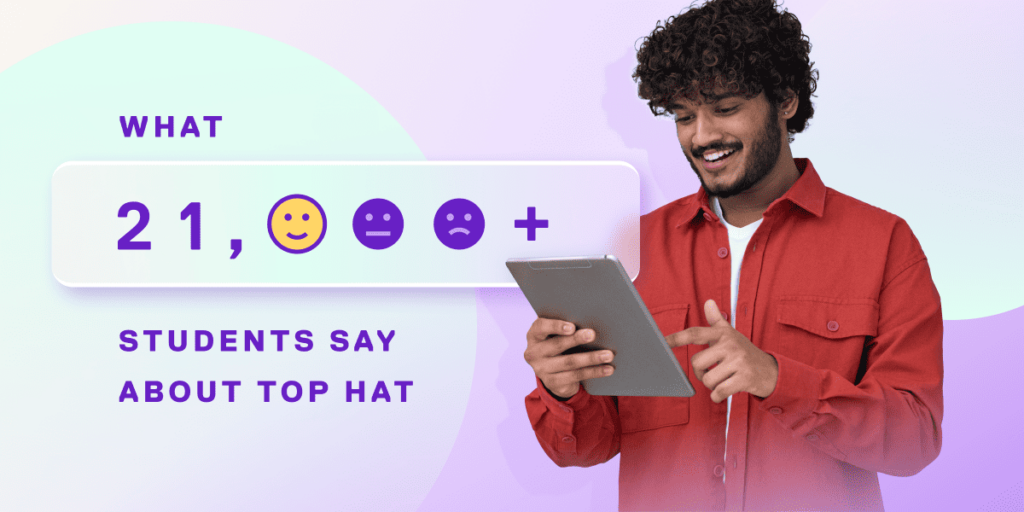Education and technology have always developed hand-in-hand—and technology has always informed the way we educate. But we are far from the end of history in education technology and there is a great deal of transformation still ongoing, in fields from machine learning and AI, to advanced analytics.
The EDUCAUSE Horizon Report: 2019 Higher Education Edition has detailed some of the technology trends that are coming down the pipe now and over the next five years. Some are closer than you think.
Mobile learning
Mobile learning is hardly new: it’s already being used in today’s classrooms with in-class polls, quizzes and collaboration. But smartphones have become ubiquitous—95 percent of undergraduate students own one, and employers now require employees to use apps for their business. This means mobile learning is becoming an even more integral part of the student learning experience, moving beyond in-class polls and quizzes towards microlearning and gamification.
“More emphasis is emerging on content that is responsive instead of adaptive and on creating microlearning experiences that can sync across multiple devices and give learners the flexibility to learn on the device of their choice,” says the EDUCAUSE Horizon Report.
Mixed reality
Another emerging trend that will continue to transform the educational realm is mixed reality (MR)—a spectrum between augmented reality (AR) and virtual reality (VR).
AR uses a smartphone or headset to overlay content or images onto the physical environment (think Pokémon GO). VR entirely immerses users in virtual simulations (typically with a headset and computer-generated environment). MIxed reality is any combination of these two, as explained in the video below:
MR is beginning to show potential as the cost of hardware and software comes down. Some companies, such as ClassVR, are already developing apps that will scale for classrooms.
MR, in particular, is suited for experiential learning. It “can enable users to visit places they might otherwise not be able to access, such as art museums, archeology sites, a refugee camp, or Mount Everest, as well as places that are entirely inaccessible, such as on board the Titanic, the Mesozoic, or Mars,” according to the EDUCAUSE Horizon report. It also enables experiential learning that would otherwise be impossible in a classroom setting, such as performing a surgery or responding to a natural disaster (all virtual, of course).
Advanced analytics
Big data and advanced analytics are hardly new; they’ve been around for decades, but educational institutions haven’t yet capitalized on all they can do with the data they collect on student surveys and faculty research. All this data can be harnessed, analyzed and put into practice to engage students, increase enrollment and improve retention rates.
According to McKinsey & Company, there is even more potential here: “The next wave of advanced analytics will, among other things, enable bespoke, personalized student experiences, with teaching catered to students’ individual learning styles and competency levels,” With advanced analytics, educators can tailor offerings to their target student population, better understand metrics for student success and even pinpoint students who are struggling to help them realize their full potential.
Artificial Intelligence
AI also harnesses big data, using machine learning to make predictions and decisions. Almost every industry is being transformed by AI, and higher education is no exception. It holds great potential to personalize education as the technology is adopted over the next four to five years.
AI can help with the analysis of large data sets for predictive modeling and decision-making, which can also create more personalized learning experiences. “AI supports pedagogical approaches such as adaptive learning, using algorithms to customize content to the predicted needs of individual students,” according to the Horizon report. Beyond pedagogical strategies, “AI works with institutional data to help colleges and universities understand retention rates, intervention needs, and program performance.”
The golden thread: Personalization
These EdTech trends all have one thing in common: They will help to customize and personalize the student learning experience. This will become increasingly important in a world where attention spans are splintered and there are many demands on people’s time. “Today, when the customer is the king, it is vital for the success of any learning course to cater to the varying needs of all the customer categories,” according to EdTech Update. “In the coming years, all the technologies, from AI to VR, will only follow one principle—customization.”


